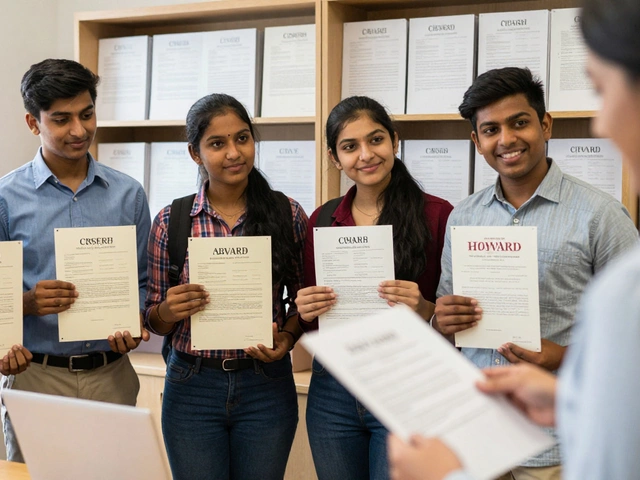If you've ever dreamed of becoming a coder, you're probably wondering just how long you'll be hitting the books, or rather the keyboard, in coding school. Don't worry, it's not as daunting as it might sound. Coding bootcamps, which are now all the rage, can vary quite a bit in how long they take, usually ranging from six weeks to over six months.
These programs are designed to get you up and running in the tech world quickly. The length you choose should match your goals: want a deep dive? Go for a longer course. Need to upskill while keeping your job? A shorter, part-time option might do the trick. Whatever you choose, there's a program out there designed to fit your lifestyle and hustle level.
- The Typical Length of Coding Schools
- Factors Influencing Program Duration
- Full-time vs Part-time Study Options
- Popular Coding Bootcamp Courses
- Choosing the Right Duration for You
- Tips for Maximizing Your Coding School Experience
The Typical Length of Coding Schools
Alright, so you're on a mission to becoming a coder and you're curious about how much time you'll spend at a coding school. Well, you're in luck because these schools are designed to be efficient, practical, and totally doable. Depending on the depth and intensity you're looking for, these programs range from as quick as a few weeks to a solid year.
Most programming classes focus on immersive learning. The fastest are the intense, full-time bootcamps that usually last about 8 to 12 weeks. Think of them as a crash course where you eat, breathe, and live coding. Great if you can afford the full-throttle approach and need to kickstart your tech career fast.
Then there are those part-time courses that stretch to about 4 to 6 months. These are perfect if you’re trying to balance learning with a job, family, or other responsibilities. You get more breathing room while still diving deep into the coding world.
Longer-term programs, which can last up to a year, offer more comprehensive training, often covering multiple programming languages or specialties. They give you more time to digest information and often provide extra support, like job placement assistance.
Here's a quick breakdown to highlight these options:
- Short-term Bootcamps: 8 to 12 weeks, full-time, intense. Ideal for a quick jumpstart.
- Mid-term Courses: 4 to 6 months, part-time or full-time. Balance learning with other commitments.
- Extended Programs: Up to a year, ideal for in-depth training and comprehensive learning.
So, take a look at these different lengths of tech education programs and figure out what fits your life and goals best. Whether you're juggling a nine-to-five or diving headfirst into the tech world, there's a program designed just for you.
Factors Influencing Program Duration
If you're considering jumping into a coding school, knowing what affects the length of these programs can help set the right expectations and plans.
First off, the level of depth the program aims to cover is a biggie. Some courses are like a quick sprint, focusing on getting you job-ready as fast as possible with just the essentials. Others might take their time to dig deeper into various programming languages and concepts, stretching over several months.
Your prior experience with programming classes can also play a role. If you're starting from scratch, a longer program might be needed to cover the basics thoroughly while refreshing or expanding existing skills might only require a shorter stint.
Different schools offer different formats that influence duration, such as full-time or part-time options. Full-time classes can wrap up in a few weeks or months, perfect if you can commit fully. Part-time could stretch the same content over a few extra months but is great if you're balancing a job or other commitments.
"The duration of a coding bootcamp is determined by its curriculum depth and the format of delivery," says Michael Choi, founder of Coding Dojo.
Then there's the curriculum itself. Some programs are project-based, which means time is primarily spent on hands-on learning, potentially making the course longer to ensure you leave with practical experience.
Accreditation requirements and industry standards also play a role. Programs that aim to confer certain credentials might follow specific guidelines on content and duration to maintain quality and competitiveness.
To get a solid understanding of what to expect, here's a little overview:
| Program Type | Typical Duration |
|---|---|
| Full-Time Bootcamp | 12-24 weeks |
| Part-Time Bootcamp | 24-36 weeks |
| Specialized Advanced Courses | 4-8 weeks |
Considering these factors will help you make a more informed decision as you gear up to start your journey into the tech sector with the perfect program for your pace and style.
Full-time vs Part-time Study Options
Choosing between a full-time and a part-time coding school can feel like deciding between binge-watching your favorite series in one go or spreading it out over weeks. Both have their perks and fit different types of learners and lifestyles.
Full-time programs are like marathons. They're intense, typically lasting anywhere from 8 to 12 weeks. You immerse yourself in coding all day, every day. The upside? You finish quickly and can dive into job hunting faster. The downside? It's a major commitment, often requiring you to put your job on hold.
On the flip side, part-time courses let you keep your day job. These programs run for a bit longer, usually around 20 to 24 weeks. You'll attend classes during evenings or weekends. It's flexible, but it can be tough to juggle work, study, and personal life. The slower pace, though, gives you more time to digest what you're learning.
Here’s a simple way to decide:
- If you're able to take a few months off and want to switch careers quickly, consider full-time.
- If you need to balance work or other commitments, part-time might be the way to go.
Whichever you choose, both paths lead to the same destination—a career in tech. The key is picking the journey that best suits your needs and lifestyle.

Popular Coding Bootcamp Courses
When it comes to choosing a coding bootcamp, the range of courses available might initially seem overwhelming. But don’t worry, it's all about picking what's right for you. Let's break down some of the popular courses you’ll find in coding schools.
Full-Stack Development is a big hit among coding students. This course teaches you everything from the front-end (think HTML, CSS, JavaScript) to back-end (stuff like databases and server management). Full-stack developers are kind of like the Swiss army knife of the tech world, making them super valuable to employers.
Then we have Data Science, which is perfect if you're the kind of person who enjoys playing with numbers and patterns. You'll dive into Python, machine learning models, and handling big data sets. This course is a great choice if you want to turn data into actionable insights for companies.
UX/UI Design is another popular option, focusing on how a product looks and feels. Here, you'll learn the principles behind user-friendly interfaces and techniques to enhance user experience. It’s an excellent path for those who enjoy blending creativity with tech skills.
Let's not forget Cybersecurity, a course that's growing crazy fast due to the increasing focus on digital security. This one covers network security, ethical hacking, and risk management. If you’re into the idea of playing the good guy against hackers, this might be your jam.
You'll also find specialized courses like Mobile App Development and AI and Machine Learning, depending on your interests and career goals. These can range from developing Android or iOS apps to creating smart algorithms that improve user experience.
Most bootcamps offer immersive and project-based learning, ensuring you get hands-on experience. This method helps learners grasp complex concepts faster and prepares them for the real-world challenges they’ll face post-graduation.
The chosen course length still plays a big role here, too. While each course might take a bit of a different approach, expect to spend anywhere from a couple of months to a whole year mastering your craft, depending on whether you're doing it full-time or part-time.
Choosing the Right Duration for You
You've decided coding is your thing, but figuring out how long you should commit to a coding school can be tricky. There isn't a one-size-fits-all answer, so think about your personal and professional goals when choosing a program length.
If you're aiming for a huge career switch and want to become a full-stack developer as fast as possible, you might lean towards a full-time, immersive coding bootcamp that lasts around three to six months. These intense programs are designed to cover a ton of material quickly and often mimic the fast-paced tech industry.
Maybe you're already juggling a job and family responsibilities—like running around with your kid's science project while coding. In that case, you might prefer a part-time program, which can last six to nine months or even longer. These options are more manageable if you need to keep a day job while learning.
Another thing to watch is the curriculum. Some schools offer specific tracks, like web development or data science. If you're set on a particular niche, make sure the program aligns with that focus.
- Consider your current obligations: Do you have the flexibility for a full-time commitment?
- Think about your learning speed: Do you prefer a faster pace or something more gradual?
- Check the industry demand: What skills are most needed in the job market?
- Research the school's success rate: How many graduates land jobs afterward?
Ultimately, the program length should align with your comfort level and aspirations in tech. It's about finding the right balance between time and learning depth. So, plan smart, and pick the program that suits your life and dream job.
Tips for Maximizing Your Coding School Experience
Getting the most out of your coding school experience isn’t just about plowing through the lessons. It's a journey that involves strategy, determination, and a bit of social savvy. Here’s how to make the most of it:
- Budget Your Time Wisely: It’s tempting to cram, but coding is complex. Break study sessions into manageable chunks and take frequent breaks. This helps avoid burnout and actually improves retention.
- Network with Classmates: Your fellow students are future colleagues. Connect with them, share insights, and help each other out. It’s less about competition and more about building a community.
- Engage with Instructors: Don’t be shy. Ask questions, attend office hours, and seek feedback. They’re there to help, and staying engaged can make a huge difference in grasping difficult concepts.
- Focus on Hands-On Projects: Aim to build something with every concept you learn. Real-world projects are infinitely more valuable when it comes to understanding and applying skills.
- Utilize Extra Resources: Don’t rely solely on the classroom. Supplement your learning with books, online forums, and free resources like Codecademy or Khan Academy to deepen your understanding.
- Keep Your Eyes on the Prize: Remember your goals, whether it’s landing a new job or upskilling for your current one, and remind yourself regularly why you’re doing this.
Additionally, some schools provide job placements or partnerships with tech companies. It's a good idea to tap into these opportunities if they're available. This could be your foot in the door into the tech industry.




